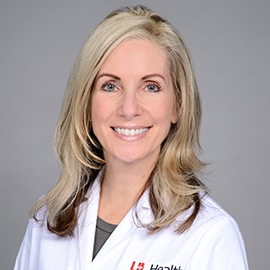
What is the most common cause of death for U.S. women? If you guessed heart disease, you are correct.
In 2021, 1 in 5 women who passed away died due to heart disease, according to the Centers for Disease Control and Prevention. The death rate from heart disease continues to increase in women.
Heart disease can affect women of all ages, and 44% of U.S. women are living with heart disease. If you are a woman, you can take steps to learn about types of heart disease that could impact you, what to do if you think you may have symptoms and steps you can take to maintain your heart health.
Types of Heart Disease
Many women experience these three common types of heart disease:
- Heart failure, which weakens the heart, making it difficult for it to pump blood to other organs
- Arrhythmia, which is when your heart beats irregularly, or too fast or too slow
- Coronary artery disease, which is caused by plaque buildup in artery walls and can lead to a heart attack
Symptoms
Women can experience the following symptoms, which could indicate heart disease:
- Tiredness or fatigue
- Nausea or vomiting
- Pain in the back, upper abdomen, throat, jaw or neck
- Angina (dull, heavy or crushing chest pain)
- Swelling of the abdomen, legs, ankles or feet
- Difficulty breathing
- Heart palpitations (fluttering sensations or a sensation that your heartbeat is irregular)
- Dizziness
- Heartburn
- Indigestion
Some women with heart disease may experience no symptoms or may not experience some of the above-listed symptoms. If you do experience symptoms, call 911.
Maintaining Heart Health
Women can take several steps to maintain heart health and reduce their risk of heart disease:
- Manage stress in healthy ways, such as talking to a therapist if needed, connecting with others, taking time to relax and more
- Limit or avoid alcohol and avoid alcohol if pregnant
- Eat healthy foods to maintain your weight or lose weight if needed
- Exercise for at least 150 minutes (two and a half hours) a week
- Get regular blood work to check your cholesterol, triglyceride and blood sugar levels
- Stop smoking if you are a smoker
- Have your blood pressure taken regularly and discuss with your health care provider if you have high blood pressure
UofL Health – Heart Hospital – Women’s Heart Program provides comprehensive cardiovascular medical care to women of all ages and all walks of life. To learn more, call 502-587-4000.
You can also click here to see all locations where UofL Health provides cardiology services to find a cardiologist near you. If you believe you are experiencing a heart attack, call 911.









